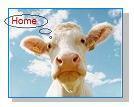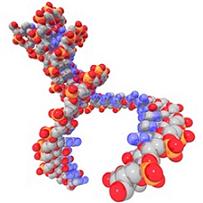|
Nutrigenomics: designer diets for a brave new worldArticle submission, Wednesday, 1st November 2006 Maybe, just maybe the newly emerging science of nutrigenomics holds the key to a very modern problem, that concerns many individuals. It is hardly surprising that a personal subject as health should create so much conjecture. We are literally bombarded from all fronts on what is good and indeed what is bad for us. Sometimes the rules change and what was once considered ok now represents itself as a possible risk to our health. Add to this the shear volume of differing diets available before us. One does not have to go any further than the women's magazines to find the latest dietary `fad'. In the main the problem with diets is that they work on some individuals whilst not on others, so they are not individualised. The truth of the matter is we are ALL different. With our now present understanding of the human genome we now know for a fact that every single person on planet earth has almost the same DNA sequence, so we are all 99.99% identical. Which is our human blueprint. Our collective individuality comes from only that 0.01%. This may seem like a very small percentage, but on the scale and magnitude of the information contained inside the DNA it represents a lot.
This in itself is by design not an accident. This 0.01 variable means much more than just looking physically different. Its variations represent our whole physiology. Natures own way of `safeguarding' our species. The domain of natural selection which means that no one strain of virus or bacteria or whatever can wipe all of us out. On the other hand if every single human had the same 100% DNA sequence (like clones) we would definitely be in trouble, and this would indeed be humanities `Achilles heel'. Yes I am deviating here slightly however its to illustrate a point. Part of the problem being in the past has been to execute clinical health studies based upon a `segment of the population', this is then represented as a collection of the whole. This has been the only way, since doing a global survey on every living individual would be close to impossible, so under the circumstances it seems quite logical. This can only be described however as a `shotgun' approach to our dietary needs.
So what exactly is nutrigenomics?
Nutrigenomics can best be described as the understanding of diet-gene interaction in human and animal health. Still in its infancy this cutting edge technology offers a substantial hope to individual nutritional needs based upon the body's actual wants by offering a designer approach to our diet. Also this technology offers a solution based on good eating to avoid any predisposed hereditary family disorders before they have chance to eventuate. In the not to distant future your whole dietary decisions will be based upon a small blood sample which will be passed through a mass spectrometer which will analyse your protein and DNA profile. Such a dietary profile will give all the information on your exact requirements from food intake to any supplements needed right down to the exact quantities and doses.
Is this the whole picture? Whilst nutrigenomics opens up vast new horizons are we the general public ready for such a brave new world? Public acceptance is critical as this represents a new way of thinking about nutrition and personalised nutrient recommendations involving genetic testing. Will consumers feel confident of its accuracy and its objectivity? Not to mention with privacy being a hot topic would anyone want prospective employers to know their genetic characteristics. Also in conclusion, yes our genetic information is important, however it only forms part of the healthy living equation. Environmental factors such as air, earth and water toxins as well as personal emotional stress, and lifestyle also play important roles which contribute to the whole equation. Only time will tell if this is a direction for the better.
Back to Site articles 

|





